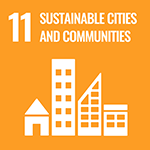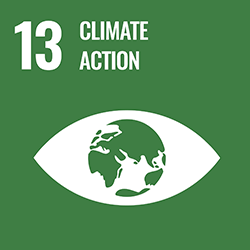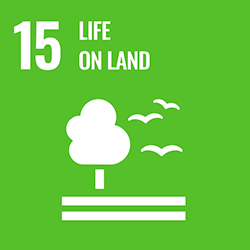The Disproportionate Impacts of Environmental Challenges Working Group aims to help address some of the world’s most pressing environmental challenges and their outsized effects on marginalized communities.
 |
 |
 |
About the Project
Guided by the principles of humility, responsibility, respect and rigor, the Disproportionate Impacts of Environmental Challenges Working Group will support community efforts to mitigate or adapt to climate change impacts. The project is motivated by two core questions:
The project is motivated by two core questions:
- How can marginalized communities effectively mitigate or adapt to climate change impacts?
- How can we produce research that is meaningful, relevant, actionable, and rigorous?
In collaboration with community partners including Indigenous youth, community elders and knowledge keepers as well as scientists and engineers, the group will develop a model for participatory, transdisciplinary research that leverages both traditional ecological knowledge and scientific knowledge.
This model will guide the development of a collective knowledge base on environmental change and climate change experiences—a knowledge-sharing platform that fosters the collaborative development of approaches to mitigating or preventing the disproportionate impacts of environmental change. The central aim of this work is societal impact—not simply bridging divides within academia, but reaching outside of the academy to co-produce and apply knowledge. Learn more in our Buffett Brief on Disproportionate Impacts of Environmental Challenges, or explore more Buffett Briefs on our global working groups' research >>
Group Members
- Andrew Dillon (NU Kellogg School of Management)
- Jennifer B. Dunn (NU McCormick School of Engineering)*
- Dean Karlan (NU Kellogg School of Management)
- Patty Loew (NU Medill School of Journalism, Media, Integrated Marketing Communications)
- William M. Miller (NU McCormick School of Engineering)
- James Schwoch (NU School of Communications)
- Pam Silas (NU Center for Native American and Indigenous Research)
- Kimberly R. Marion Suiseeya (NU Weinberg College of Arts & Sciences - Political Science; Environmental Policy and Culture Program)*
- Niraj Swami (Applied AI & Innovation Ventures, The Nature Conservancy)
- Anita Van Breda (Environment and Disaster Management, World Wildlife Fund)
- Sera Young (NU Weinberg College of Arts & Sciences - Anthropology)
- Nyree Zerega (NU Weinberg College of Arts & Sciences - Plant Biology and Conservation)
*indicates Group leaders
Student research assistants:
- Aidan Boleyn-Fitzgerald (Weinberg College of Arts and Sciences, Political Science and Environmental Policy ’25)
- Anna Lansford (Medill School of Journalism, Journalism and Political Science ‘24)
- Joann Lenart (Weinberg College of Arts and Sciences, Political Science and Legal Studies ’24)
- Isabel Machlab (Weinberg College of Arts and Sciences, Political Science and International Studies ’25)
- Julien Rentsch (Weinberg College of Arts and Sciences, Political Science, International Studies and Music ’24)
